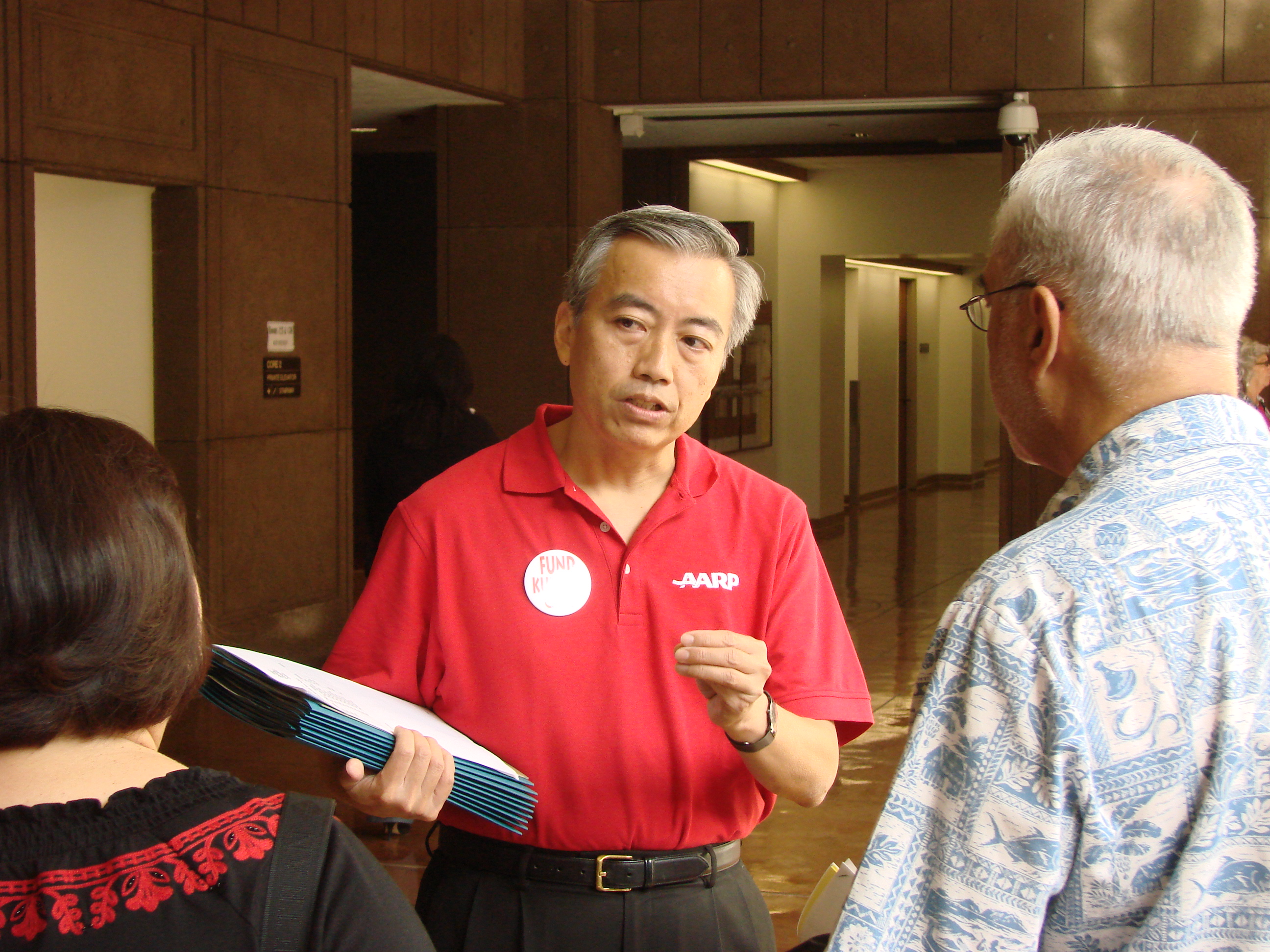AARP Hearing Center

AARP New York’s state legislative priorities include safeguarding New Yorkers’ access to quality, affordable health care and prescription coverage. By the year 2030, the number of older New Yorkers is expected to increase by 65 percent. The legislative session in Albany drew to a close in late June. AARP’s volunteers and members fought to ensure policies adopted allow New Yorkers to age with dignity, independence and security.
More than 29,000 members participated in tele-town hall meetings on issues impacting the state’s 50+ population. More than 150 volunteers visited their state legislators in Albany and members and activists made more than 30,000 contacts with state elected officials via phone calls, emails and faxes.
Below is an End of Session summary on AARP’s key state legislative priorities. Many thanks again to all of AARP’s volunteers and members that took action this session.
Prescription Drug Affordability
More than $30 million in funding was restored to the Elderly Pharmaceutical Insurance Coverage (EPIC) program. This restoration was greatly needed by older adults in New York after the state drastically cut EPIC funding in last year’s budget. Under this cut, many seniors on EPIC found they could not afford their medications because the program no longer provided co-pay assistance. Many older New Yorkers struggled to pay hundreds of dollars for their prescriptions. The average EPIC enrollee is a 78-year-old widow who takes four prescriptions. Because of the restoration in funding, as of January 2013, seniors will only be responsible for a co-payment that will be no higher than $20. Restoring the critical co-payment assistance will help provide EPIC enrollees access to the medicines they need to stay healthy as they age.
Health Care for New Yorkers
The Governor issued an executive order to establish a “New York State Heath Benefit Exchange" in April 2012. AARP New York supported Governor Cuomo’s creation of a Health Benefit Exchange in New York by executive order. This will help insured New Yorkers and their families purchase quality and affordable health care coverage in the future and will clear the way for New York State to access additional federal funding to develop the exchange. AARP will continue to advocate that the health exchange to be a pro-consumer one. The Health Exchange has the potential to help the 50-64-year-old population in New York. More than 337,000 in this age group are currently uninsured. This group is at an increased risk for changes in their personal health status, such as the onset of chronic health conditions or disabilities. This age group is also not yet eligible for Medicare in the event of losing their employer-based health care coverage.
Hunger
An estimated one out of every four older New Yorkers living at home is considered nutritionally at risk, according to New York State’s Office for the Aging. Approximately 50% of New Yorkers age 65+ who are eligible for food stamps are not receiving them. AARP supported legislation that as signed into law in May changing the name of the food stamp program to the Supplemental Nutrition Assistance Program (SNAP). This change will help to remove the stigma associated with receiving this federally funded assistance and allow a greater number of older adults to access nutritional assistance. Governor Cuomo also ended the practice of fingerprinting for food stamps which will also increase access, reduce stigma, and break down barriers to enrollment.
Energy Affordability
New York households pay among the highest electricity rates in the United States. Older Americans devote more of their total spending to home energy costs than any other age group and 40% of New Yorkers age 50+ have reported having difficulty paying their monthly utility bill. AARP supports increased oversight and transparency in the electricity marketplace, strengthened consumer protections, and an expanded Home Energy Assistance Program (HEAP). This session, AARP advocated that the New York portion of national energy settlement awarded to the state by FERC, totaling $78 million, be used to increase funding for weatherization and home energy assistance programs, and energy efficient appliance rebate programs. AARP also advocated that the funds be used to establish an independent office or organization that would provide a voice for consumers through advocacy in regulatory proceedings impacting their energy rates and terms and conditions of their residential electricity service. AARP expects New York State to make a decision on how to allocate this settlement money this fall.
Long-Term Care
The increase in New York’s aging population will result in more people needing long-term services and supports for themselves or an aging relative. This session AARP fought to restore funding for long-term care and for the state to maintain funding in the budget for home and community based care services that help people stay in their home as they age. AARP also advocated for the Commissioner of the Department of Health to track and report consumer experiences in the transition to managed long-term care and develop transition and continuity of care policies for participants in home- and community-based, long-term care. AARP believes the state should provide consumers with choice and independence so they can receive long-term care and remain in their homes and communities for as long as possible.
During the session AARP also continued to advocate on a number of other fronts ranging from increasing funding for grandparents raising grandchildren, help for unpaid family caregivers who care the frail elderly, universal design that facilitates aging in place and for enhanced consumer protections.































































